第2章 CHAPTER I(2)
Our lieutenant was sent upon a foraging expedition into the valley of the Upper Douro, at the head of a half-troop of the 8th Dragoons, two squadrons of which were attached at the time to the Light Division. To be more precise, he was to purchase and bring into Pinhel a hundred head of cattle, intended some for slaughter and some for draught. His instructions were to proceed as far as Regoa and there report himself to one Bartholomew Bearsley, a prosperous and influential English wine-grower, whose father had acquired considerable vineyards in the Douro. He was reminded of the almost hostile disposition of the peasantry in certain districts; warned to handle them with tact and to suffer no straggling on the part of his troopers; and advised to place himself in the hands of Mr.
Bearsley for all that related to the purchase of the cattle. Let it be admitted at once that had Sir Robert Craufurd been acquainted with Mr. Butler's feather-brained, irresponsible nature, he would have selected any officer rather than our lieutenant to command that expedition. But the Irish Dragoons had only lately come to Pinhel, and the general himself was not immediately concerned.
Lieutenant Butler set out on a blustering day of March at the head of his troopers, accompanied by Cornet O.'Rourke and two sergeants, and at Pesqueira he was further reinforced by a Portuguese guide.
They found quarters that night at Ervedoza, and early on the morrow they were in the saddle again, riding along the heights above the Cachao da Valleria, through which the yellow, swollen river swirled and foamed along its rocky way. The prospect, formidable even in the full bloom of fruitful and luxuriant summer, was forbidding and menacing now as some imagined gorge of the nether regions. The towering granite heights across the turgid stream were shrouded in mist and sweeping rain, and from the leaden heavens overhead the downpour was of a sullen and merciless steadiness, starting at every step a miniature torrent to go swell the roaring waters in the gorge, and drenching the troop alike in body and in spirit.
Ahead, swathed to the chin in his blue cavalry cloak, the water streaming from his leather helmet, rode Lieutenant Butler, cursing the weather, the country; the Light Division, and everything else that occurred to him as contributing to his present discomfort.
Beside him, astride of a mule, rode the Portuguese guide in a caped cloak of thatched straw, which made him look for all the world like a bottle of his native wine in its straw sheath. Conversation between the two was out of the question, for the guide spoke no English and the lieutenant's knowledge of Portuguese was very far from conversational.
Presently the ground sloped, and the troop descended from the heights by a road flanked with dripping pinewoods, black and melancholy, that for a while screened them off from the remainder of the sodden world.
Thence they emerged near the head of the bridge that spanned the swollen river and led them directly into the town of Regoa. Through the mud and clay of the deserted, narrow, unpaved streets the dragoons squelched their way, under a super-deluge, for the rain was now reinforced by steady and overwhelming sheets of water descending on either side from the gutter-shaped tiles that roofed the houses.
Inquisitive faces showed here and there behind blurred windows; odd doors were opened that a peasant family might stare in questioning wonder - and perhaps in some concern - at the sodden pageant that was passing. But in the streets themselves the troopers met no living thing, all the world having scurried to shelter from the pitiless downpour.
Beyond the town they were brought by their guide to a walled garden, and halted at a gateway. Beyond this could be seen a fair white house set in the foreground of the vineyards that rose in terraces up the hillside until they were lost from sight in the lowering veils of mist. Carved on the granite lintel of that gateway, the lieutenant beheld the inscription, "BARTHOLOMEU BEARSLEY, 1744," and knew himself at his destination, at the gates of the son or grandson - he knew not which, nor cared - of the original tenant of that wine farm.
Mr. Bearsley, however, was from home. The lieutenant was informed of this by Mr. Bearsley's steward, a portly, genial, rather priestly gentleman in smooth black broadcloth, whose name was Souza - a name which, as I have said, has given rise to some misconceptions. Mr.
Bearsley himself had lately left for England, there to wait until the disturbed state of Portugal should be happily repaired. He had been a considerable sufferer from the French invasion under Soult, and none may blame him for wishing to avoid a repetition of what already he had undergone, especially now that it was rumoured that the Emperor in person would lead the army gathering for conquest on the frontiers.
But had Mr. Bearsley been at home the dragoons could have received no warmer welcome than that which was extended to them by Fernando Souza. Greeting the lieutenant in intelligible English, he implored him, in the florid manner of the Peninsula, to count the house and all within it his own property, and to command whatever he might desire.
The troopers found accommodation in the kitchen and in the spacious hall, where great fires of pine logs were piled up for their comfort; and for the remainder of the day they abode there in various states of nakedness, relieved by blankets and straw capotes, what time the house was filled with the steam and stench of their drying garments.